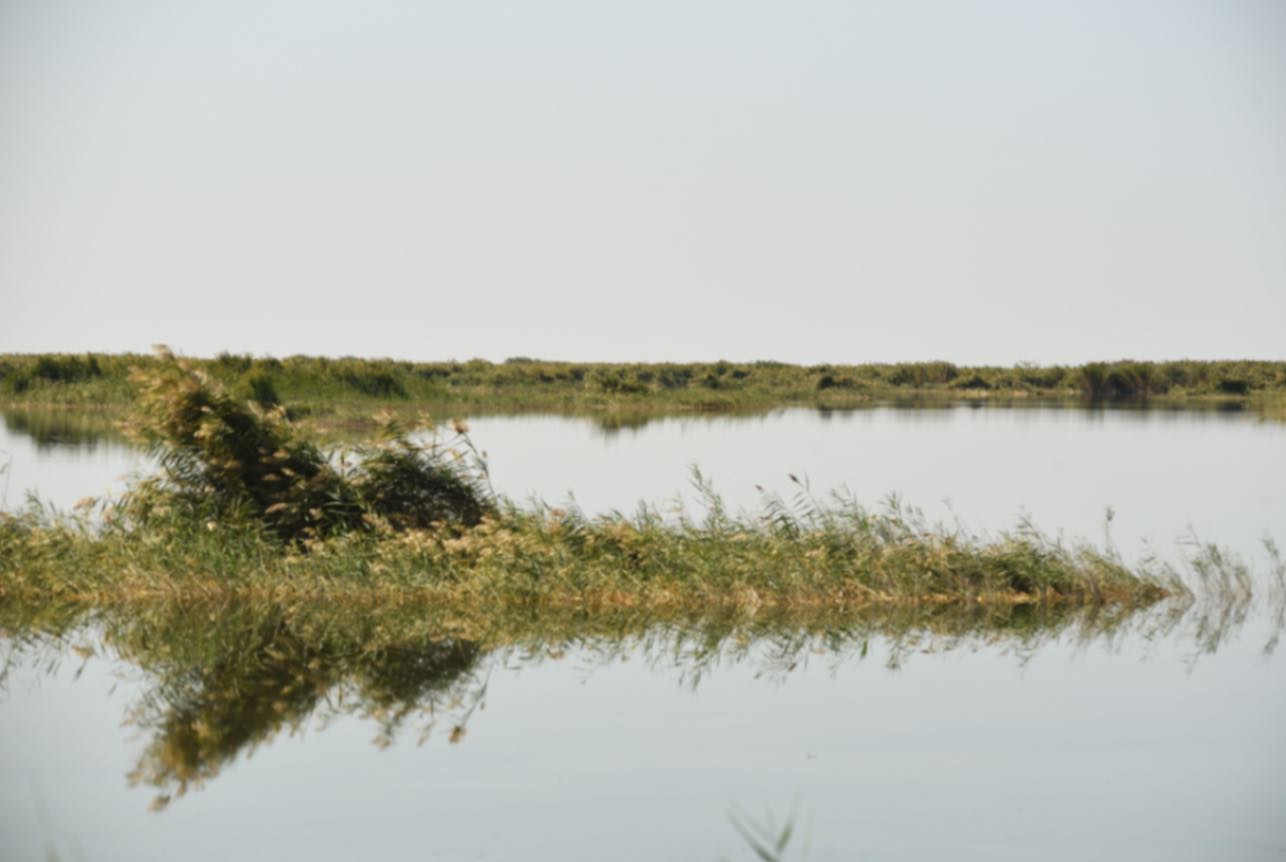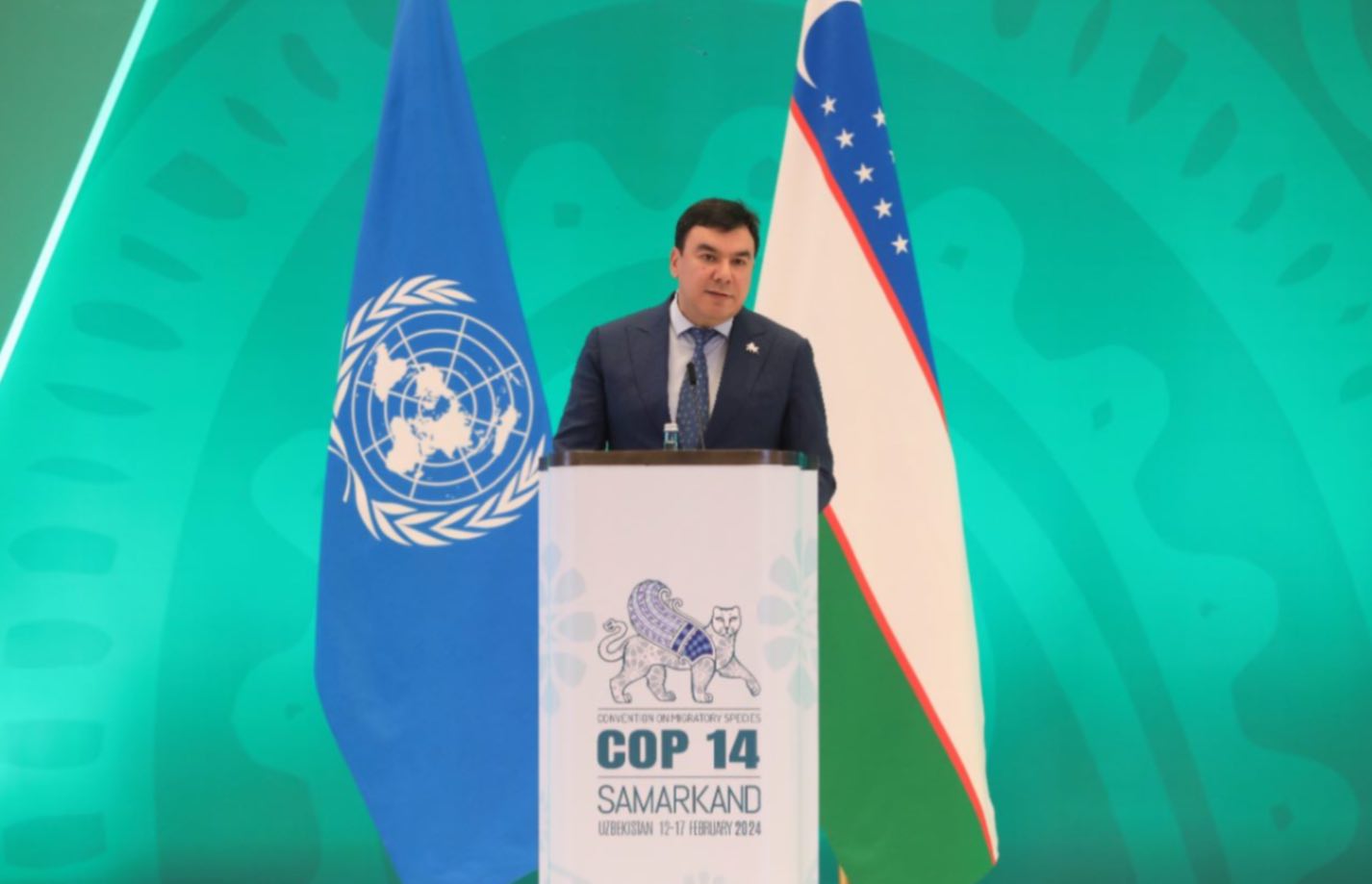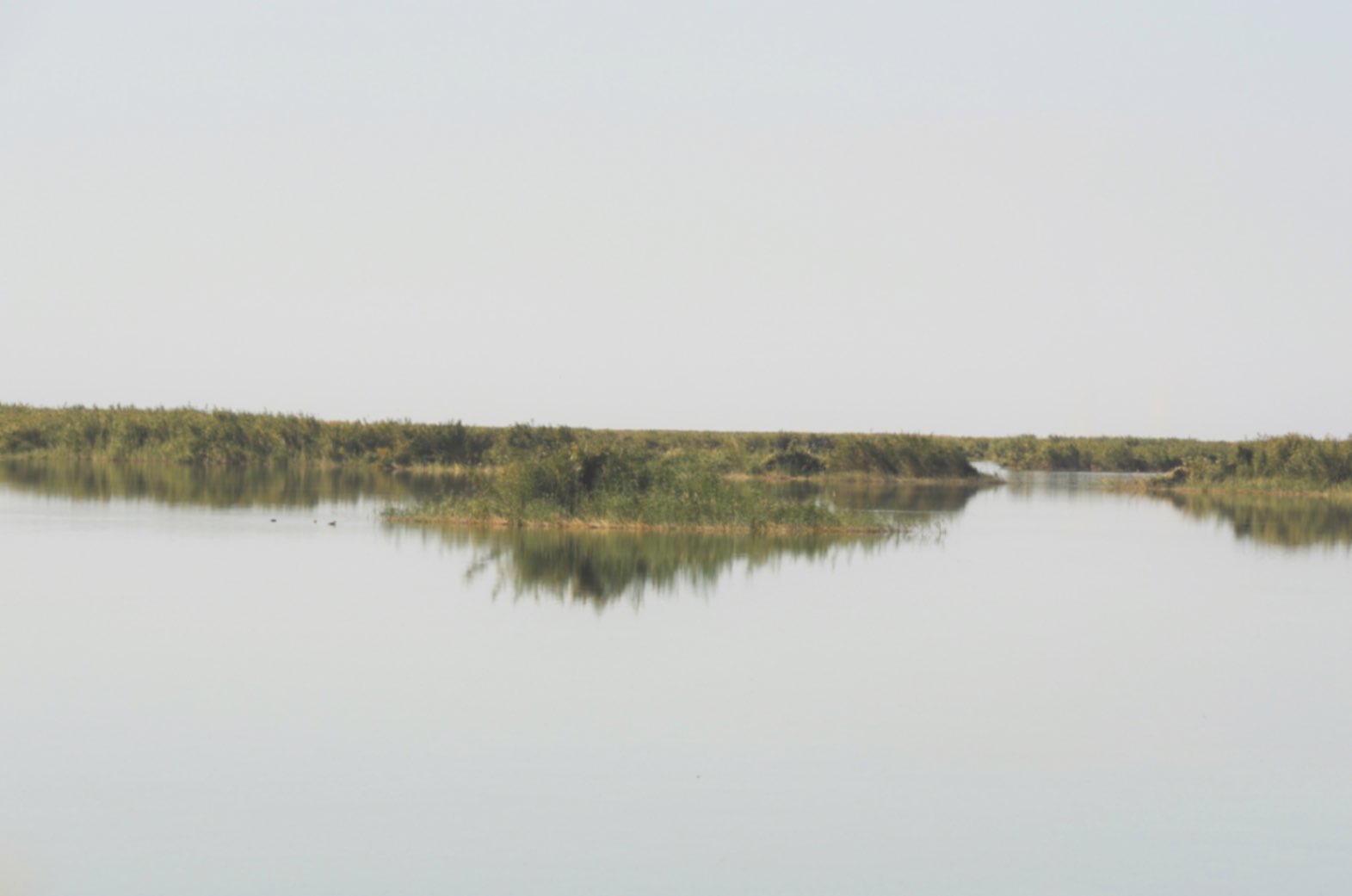Lake Zhyltyrbas, located in Karakalpakstan, has been officially recognized as a wetland of international importance, the Ministry of Ecology, Environmental Protection, and Climate Change reported. The announcement came from Aziz Abdukhakimov, the Minister of Ecology, Environmental Protection, and Climate Change, during a press conference at the CMS COP14 on February 12.

The Ramsar Convention secretariat presented Uzbekistan with a certificate confirming the inclusion of Lake Zhyltyrbas in the prestigious list of wetlands of international significance. Minister Aziz Abdukhakimov hailed this achievement as a testament to the country's dedication to environmental stewardship.
"The Ramsar Convention secretariat has handed us a certificate on the inclusion of the fifth natural site of Uzbekistan in the list of wetlands of international importance — Lake Zhyltyrbas in Karakalpakstan. This is a great event for all of us," declared Minister Abdukhakimov, emphasizing the commitment of the Uzbekistan government and its leadership to ecological preservation.

He highlighted the recent inclusion of the Sudochie Lake System as the fourth site from Uzbekistan to be recognized on the Ramsar list, demonstrating the nation's proactive stance on environmental protection.
“This once again proves the intensive work and great attention paid by the government of Uzbekistan and the head of state to the field of ecology and protection of natural territories," Minister Abdukhakimov added.
The process of securing Lake Zhyltyrbas' inclusion spanned 1.5 years, during which the Ministry of Ecology meticulously assessed the site's ecological significance. Furthermore, researchers have been studying the natural features of Lake Zhyltyrbas for 15 years, underlining the depth of understanding and dedication invested in its conservation.

Lake Zhyltyrbas, once a bay of the Aral Sea, has evolved into a vital ecosystem since the sea's decline. Fed by the Amu Darya River, the lake supports native fauna from the Southern Aral Sea, playing a crucial role in preserving regional biodiversity. Despite challenges such as decreased water levels and additional irrigation canals, efforts have been made to maintain the lake's ecological balance, crucial for mitigating salt and dust storms in the region.
Ecologically, Lake Zhyltyrbas serves as a crucial habitat during nesting and migration seasons for rare bird species, contributing to the biological diversity of Central Asia's deserts. Its diverse landscape encompasses reeds, shrubs, salt marshes, swamps, canals, and deserts, making it a sanctuary for various flora and fauna, including rare endemic fish species.
The inclusion of Lake Zhyltyrbas brings the total number of wetlands recognized in Uzbekistan by the Ramsar Convention to five. Previously designated sites include Lake Dengizkul (2001), the Arnasai Lake System (2008), and the Tudakul and Kuimazar Reservoirs (2020), with the Sudochie Lake System joining the list last year. Collectively, these sites cover an impressive area of 674,400 hectares, underscoring Uzbekistan's rich natural heritage and its commitment to preserving it for future generations.

The Convention on Wetlands and its Mission
The Ramsar Convention's mission is to promote the conservation and sustainable use of wetlands worldwide. Wetlands, which encompass various ecosystems like lakes, rivers, marshes, and coastal areas, are vital for biodiversity and provide essential services such as freshwater supply. Despite their importance, wetlands face degradation and conversion to other uses.
The Convention employs a comprehensive definition of wetlands, covering natural and human-made sites. Contracting Parties commit to three main pillars: promoting the wise use of all wetlands, designating suitable sites for the Ramsar List of Wetlands of International Importance, and collaborating internationally on shared wetland systems and species.
Wetlands play a critical role in sustaining life on Earth, serving as highly productive environments and hubs of biodiversity. They offer numerous ecosystem services essential for human well-being, including freshwater supply, food, flood control, and climate regulation. Despite their importance, wetlands face ongoing degradation globally, leading to a decline in the services they provide. With 172 countries as Contracting Parties, the Ramsar Convention addresses this global challenge by advocating for the conservation and sustainable management of wetlands. Its broad definition encompasses various wetland types, emphasizing the need for comprehensive protection and stewardship of these vital ecosystems.
Follow Daryo's official Instagram and Twitter pages to keep current on world news.
Comments (0)